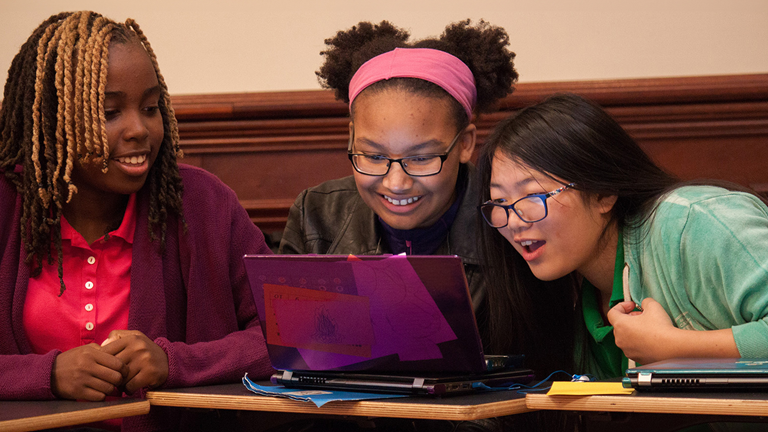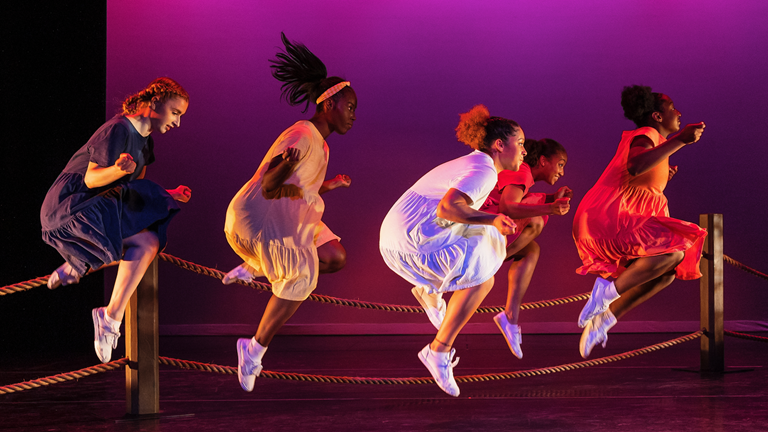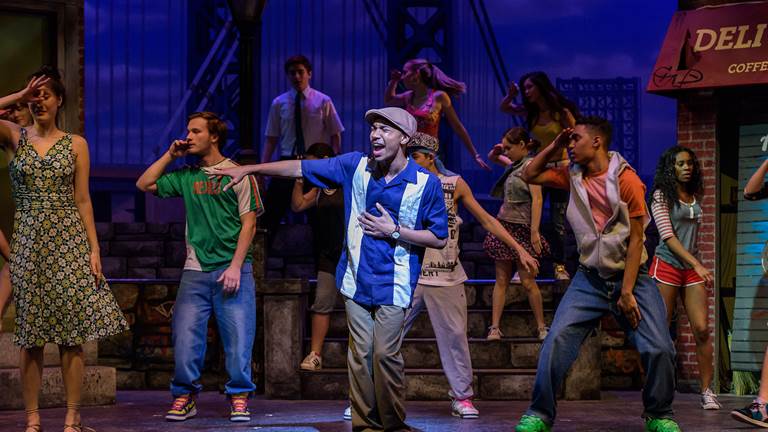Theater Look-In: Les Misérables
A conversation with members of the 2011 cast of Les Misérables: Andrew Varela (Javert), Betsy Morgan (Fantine, and J. Mark McVey (Jean Valjean)

In 1986, the Kennedy Center hosted the pre-Broadway run of what has become, undisputedly, one of the world’s most popular musicals. Now, we are bringing her home. Seen by over 130 million people worldwide, this brilliant production has been hailed as “Les Mis for the 21st Century” (Huffington Post). Witness the epic story of love, passion, sacrifice, and redemption—a timeless testament to the survival of the human spirit.
April 27, 2023
This event is no longer available. Registration for this event has closed.
Opera House, recommended for grades 8-12
Estimated duration is approximately two hours and 30 minutes.
A conversation with members of the 2011 cast of Les Misérables: Andrew Varela (Javert), Betsy Morgan (Fantine, and J. Mark McVey (Jean Valjean)
Learn about musical theater using examples from Broadway, the history, structure and elements of musical theater, musical theater's role in social commentary, its legacy, and how you too can create a musical.
Here’s a handy guide to some basic stage directions, the most common parts of a theater, and different types of theater spaces
Go backstage with the composers, performers, designers, and technicians of Broadway's biggest hits. Learn the history of musical theatre in America, join a discussion with a creative team, or watch some of the biggest stars take the stage. Sing out, Louise!
Professional development for educators. Summer intensives for young artists. Teaching artist guided activities. Performances for young audiences. Classroom lesson plans. Arts-focused digital media.
Kennedy Center Education offers a wide array of resources and experiences that inspire, excite, and empower students and young artists, plus the tools and connections to help educators incorporate the arts into classrooms of all types.
Our current teaching and learning priorities include:
A robust collection of articles, videos, and podcasts that allow students of all ages to explore and learn about the arts online.

In-person and virtual performances, along with supporting educational content to help guide learning.

Current approaches to arts integration in the classroom, inclusion, rigor, and adopting an arts integration approach at the school and district level.

An asynchronous online course that invites educators and administrators to think about our students’ disabilities as social and cultural identities that enrich our classrooms and communities.

The Vice President of Education is generously endowed by the
Generous support for educational programs at the Kennedy Center is provided by the U.S. Department of Education.
Gifts and grants to educational programs at the Kennedy Center are provided by The Paul M. Angell Family Foundation; Bank of America; Capital One; The Morris and Gwendolyn Cafritz Foundation; Carnegie Corporation of New York; The Ednah Root Foundation; Harman Family Foundation; William R. Kenan, Jr. Charitable Trust; the Kimsey Endowment; The Kiplinger Foundation; Laird Norton Family Foundation; Lois and Richard England Family Foundation; Dr. Gary Mather and Ms. Christina Co Mather; The Markow Totevy Foundation; Dr. Gerald and Paula McNichols Foundation; The Morningstar Foundation; Myra and Leura Younker Endowment Fund; The Irene Pollin Audience Development and Community Engagement Initiatives;
Prince Charitable Trusts; Dr. Deborah Rose and Dr. Jan A. J. Stolwijk; Rosemary Kennedy Education Fund; The Embassy of the United Arab Emirates; The Victory Foundation; The Volgenau Foundation; Volkswagen Group of America; Jackie Washington; GRoW @ Annenberg and Gregory Annenberg Weingarten and Family; Wells Fargo; and generous contributors to the Abe Fortas Memorial Fund and by a major gift to the fund from the late Carolyn E. Agger, widow of Abe Fortas. Additional support is provided by the National Committee for the Performing Arts..
The content of these programs may have been developed under a grant from the U.S. Department of Education but does not necessarily represent the policy of the U.S. Department of Education. You should not assume endorsement by the federal government.